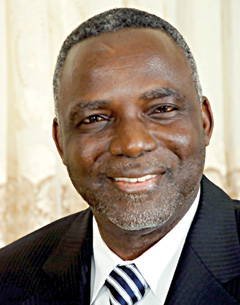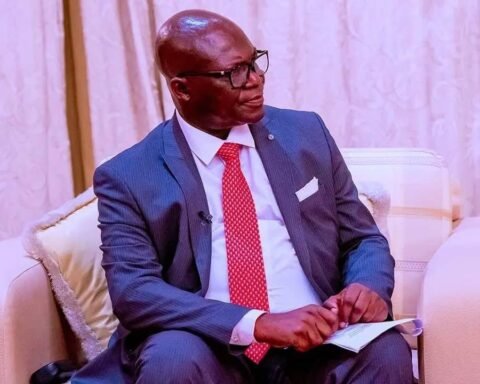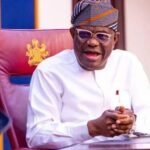By C. Don Adinuba
On Tuesday, July 1, while travelling with him from Enugu to Aba, his phone kept on ringing endlessly. Typical of him, Bart Nnaji took every call and addressed each caller patiently, carefully, and politely. One call struck me in particular. It was a widow from his rural community who reported that her husband’s kinsmen had decided to seize her village compound, leaving her and grown-up children with no ancestral home.
Wondering why the local folks should take such an oppressive step, he quickly made inquiries which revealed that the kinsmen were not keen on seizing the widow’s land. They were not happy that since she lost her husband, a successful and well-educated professional, about 10 years ago, she and her children have not been visiting home, though they live in Enugu which is only 20 minutes away. So, the kinsmen pulled the stunt of property seizure to force her and the children to start coming home regularly and identify robustly with their community and its people.
Why did this widow turn to Nnaji for intervention? Probably because the former Minister of Power who has also been the Minister of Science and Technology is the most prominent and influential person in Umuode in Nkanu East Local Government Area, one of the smallest communities in Enugu State. But it is more likely because, unknown to most Nigerians, Nnaji, recipient of four national honours, is the chairman of the community’s land committee, an office he takes with utmost seriousness, just as he does with his chairmanship of the Nigeria Liquefied Natural Gas (NLNG) Prize for Science Committee and his chairmanship of the Bells University of Technology Governing Council. It’s one of the reasons why he travels to this rural community at least every two weeks and holds endless meetings with peasant farmers, cleaners, palm wine tappers, gate men, civil servants, failed traders, university lecturers, professionals, etc. This position must be one of great trust because land disputes are a major source of communal fights in the Southeast, Nigeria’s smallest geopolitical zone by land mass. Some land cases from the Southeast have lasted in courts for up to 100 years, with most getting to the Supreme Court.
Four days to the widow’s distress call, Nnaji was in Abuja to attend the 25th anniversary of the African Export-Import (AfriExim) Bank where he was on the panel of experts that included former President Olusegun Obasanjo to discuss the strategies for Africa’s rapid development. He has a more than a passing interest in AfriExim Bank affairs. The continental bank provided the $50m facility used to resuscitate and complete the $800m Aba Independent Power Project by Geometric Power, a company he founded and leads as the chairman. The Aba project is today the biggest single investment in the Southeast and Nigeria’s foremost power integrated power project. Whereas Sahara Energy owns both the Egbin Power generation company in Lagos and the Ikeja Electricity Distribution Company, the power it produces from Egbin is supplied to the national grid, unlike in Aba where electricity generated from the Geometric Power Plant in Aba is used in the Aba Ring-fenced Area comprising nine of the 19 LGAs in Abia State.
The fact that Nnaji can immerse himself in very local matters and at the same be a most respected player in Africa and beyond—he brought Jeff Immelt, then the CEO of General Electric which was the world’s most capitalized and admired firm, to Nigeria in 2012, his first and only visit to Africa—is a rare attribute. Following a study that spanned 25 years involving thousands of participants, David Rooke of Harthill Consulting in England and William R. Torbert, a leadership professor emeritus at Boston College, a leading Jesuit university in the United States, developed the theoretical framework of seven leadership action logics, the most effective of which is called the alchemist action logic. Alchemists handle contrasts seamlessly, and very few people in the world can do it. In a well-anthologized article published in Harvard Business Review of April 2005, the authors described the alchemist as a person “with an extraordinary capacity to deal simultaneously with many situations at multiple levels. The alchemist can talk with both kings and commoners. He can deal with immediate priorities yet never lose sight of long-term goals”.
In this essay, which Harvard Business Review editors selected in 2011 as one of the best 10 articles on leadership ever published in the journal, Rooke and Torbert were able to identify only six alchemists in the 25-year research, the most prominent being Nelson Mandela. Only Mandela could attend the World Rugby competition and wear the Springboks cap and shirt, a symbol of Apartheid South Africa. Before anyone could wonder if he had sold out, President Mandela raised his clinched fists and raised them to the crowd, symbolizing Blacks’ resistance to racism and oppression. Rooke and Torbert quote Tokyo Sexwale, a top ANC activist as observing “only Mandela could wear an enemy jersey. Only Mandela would go down there and be associated with the Springboks… All the years in the underground, in the trenches, denial, self-denial, away from home, prison, it was worth it. That’s all we wanted to see”.
Nnaji represents not so much contrasts as a tapestry. It was once widely thought that excellent sports people wouldn’t do well academically. He excelled in both at the national level, enabling him to win a full-funded scholarship to the United States where he also set a record in both areas. It is still believed in some quarters that scientists are crazy people, or wacko professors as the late President George Bush called them, but Nnaji is thoroughly organized, cultured, humane and socially engaged. It is widely thought that scholars can’t be successful businessmen, but Nnaji is now an internationally recognized entrepreneur.
On his 69th birthday today, Sunday, July 13, we say to a truly outstanding African who long ago was decorated with the World Bank/IMF African Scientist of the Year Award: Ad multus annos.
Adinuba is a former Commissioner for Information & Public Enlightenment, Anambra State.
Bart Nnaji: An Alchemist at 69
By C. Don Adinuba
On Tuesday, July 1, while travelling with him from Enugu to Aba, his phone kept on ringing endlessly. Typical of him, Bart Nnaji took every call and addressed each caller patiently, carefully, and politely. One call struck me in particular. It was a widow from his rural community who reported that her husband’s kinsmen had decided to seize her village compound, leaving her and grown-up children with no ancestral home.
Wondering why the local folks should take such an oppressive step, he quickly made inquiries which revealed that the kinsmen were not keen on seizing the widow’s land. They were not happy that since she lost her husband, a successful and well-educated professional, about 10 years ago, she and her children have not been visiting home, though they live in Enugu which is only 20 minutes away. So, the kinsmen pulled the stunt of property seizure to force her and the children to start coming home regularly and identify robustly with their community and its people.
Why did this widow turn to Nnaji for intervention? Probably because the former Minister of Power who has also been the Minister of Science and Technology is the most prominent and influential person in Umuode in Nkanu East Local Government Area, one of the smallest communities in Enugu State. But it is more likely because, unknown to most Nigerians, Nnaji, recipient of four national honours, is the chairman of the community’s land committee, an office he takes with utmost seriousness, just as he does with his chairmanship of the Nigeria Liquefied Natural Gas (NLNG) Prize for Science Committee and his chairmanship of the Bells University of Technology Governing Council. It’s one of the reasons why he travels to this rural community at least every two weeks and holds endless meetings with peasant farmers, cleaners, palm wine tappers, gate men, civil servants, failed traders, university lecturers, professionals, etc. This position must be one of great trust because land disputes are a major source of communal fights in the Southeast, Nigeria’s smallest geopolitical zone by land mass. Some land cases from the Southeast have lasted in courts for up to 100 years, with most getting to the Supreme Court.
Four days to the widow’s distress call, Nnaji was in Abuja to attend the 25th anniversary of the African Export-Import (AfriExim) Bank where he was on the panel of experts that included former President Olusegun Obasanjo to discuss the strategies for Africa’s rapid development. He has a more than a passing interest in AfriExim Bank affairs. The continental bank provided the $50m facility used to resuscitate and complete the $800m Aba Independent Power Project by Geometric Power, a company he founded and leads as the chairman. The Aba project is today the biggest single investment in the Southeast and Nigeria’s foremost power integrated power project. Whereas Sahara Energy owns both the Egbin Power generation company in Lagos and the Ikeja Electricity Distribution Company, the power it produces from Egbin is supplied to the national grid, unlike in Aba where electricity generated from the Geometric Power Plant in Aba is used in the Aba Ring-fenced Area comprising nine of the 19 LGAs in Abia State.
The fact that Nnaji can immerse himself in very local matters and at the same be a most respected player in Africa and beyond—he brought Jeff Immelt, then the CEO of General Electric which was the world’s most capitalized and admired firm, to Nigeria in 2012, his first and only visit to Africa—is a rare attribute. Following a study that spanned 25 years involving thousands of participants, David Rooke of Harthill Consulting in England and William R. Torbert, a leadership professor emeritus at Boston College, a leading Jesuit university in the United States, developed the theoretical framework of seven leadership action logics, the most effective of which is called the alchemist action logic. Alchemists handle contrasts seamlessly, and very few people in the world can do it. In a well-anthologized article published in Harvard Business Review of April 2005, the authors described the alchemist as a person “with an extraordinary capacity to deal simultaneously with many situations at multiple levels. The alchemist can talk with both kings and commoners. He can deal with immediate priorities yet never lose sight of long-term goals”.
In this essay, which Harvard Business Review editors selected in 2011 as one of the best 10 articles on leadership ever published in the journal, Rooke and Torbert were able to identify only six alchemists in the 25-year research, the most prominent being Nelson Mandela. Only Mandela could attend the World Rugby competition and wear the Springboks cap and shirt, a symbol of Apartheid South Africa. Before anyone could wonder if he had sold out, President Mandela raised his clinched fists and raised them to the crowd, symbolizing Blacks’ resistance to racism and oppression. Rooke and Torbert quote Tokyo Sexwale, a top ANC activist as observing “only Mandela could wear an enemy jersey. Only Mandela would go down there and be associated with the Springboks… All the years in the underground, in the trenches, denial, self-denial, away from home, prison, it was worth it. That’s all we wanted to see”.
Nnaji represents not so much contrasts as a tapestry. It was once widely thought that excellent sports people wouldn’t do well academically. He excelled in both at the national level, enabling him to win a full-funded scholarship to the United States where he also set a record in both areas. It is still believed in some quarters that scientists are crazy people, or wacko professors as the late President George Bush called them, but Nnaji is thoroughly organized, cultured, humane and socially engaged. It is widely thought that scholars can’t be successful businessmen, but Nnaji is now an internationally recognized entrepreneur.
On his 69th birthday today, Sunday, July 13, we say to a truly outstanding African who long ago was decorated with the World Bank/IMF African Scientist of the Year Award: Ad multus annos.
Adinuba is a former Commissioner for Information & Public Enlightenment, Anambra State.
By C. Don Adinuba
On Tuesday, July 1, while travelling with him from Enugu to Aba, his phone kept on ringing endlessly. Typical of him, Bart Nnaji took every call and addressed each caller patiently, carefully, and politely. One call struck me in particular. It was a widow from his rural community who reported that her husband’s kinsmen had decided to seize her village compound, leaving her and grown-up children with no ancestral home.
Wondering why the local folks should take such an oppressive step, he quickly made inquiries which revealed that the kinsmen were not keen on seizing the widow’s land. They were not happy that since she lost her husband, a successful and well-educated professional, about 10 years ago, she and her children have not been visiting home, though they live in Enugu which is only 20 minutes away. So, the kinsmen pulled the stunt of property seizure to force her and the children to start coming home regularly and identify robustly with their community and its people.
Why did this widow turn to Nnaji for intervention? Probably because the former Minister of Power who has also been the Minister of Science and Technology is the most prominent and influential person in Umuode in Nkanu East Local Government Area, one of the smallest communities in Enugu State. But it is more likely because, unknown to most Nigerians, Nnaji, recipient of four national honours, is the chairman of the community’s land committee, an office he takes with utmost seriousness, just as he does with his chairmanship of the Nigeria Liquefied Natural Gas (NLNG) Prize for Science Committee and his chairmanship of the Bells University of Technology Governing Council. It’s one of the reasons why he travels to this rural community at least every two weeks and holds endless meetings with peasant farmers, cleaners, palm wine tappers, gate men, civil servants, failed traders, university lecturers, professionals, etc. This position must be one of great trust because land disputes are a major source of communal fights in the Southeast, Nigeria’s smallest geopolitical zone by land mass. Some land cases from the Southeast have lasted in courts for up to 100 years, with most getting to the Supreme Court.
Four days to the widow’s distress call, Nnaji was in Abuja to attend the 25th anniversary of the African Export-Import (AfriExim) Bank where he was on the panel of experts that included former President Olusegun Obasanjo to discuss the strategies for Africa’s rapid development. He has a more than a passing interest in AfriExim Bank affairs. The continental bank provided the $50m facility used to resuscitate and complete the $800m Aba Independent Power Project by Geometric Power, a company he founded and leads as the chairman. The Aba project is today the biggest single investment in the Southeast and Nigeria’s foremost power integrated power project. Whereas Sahara Energy owns both the Egbin Power generation company in Lagos and the Ikeja Electricity Distribution Company, the power it produces from Egbin is supplied to the national grid, unlike in Aba where electricity generated from the Geometric Power Plant in Aba is used in the Aba Ring-fenced Area comprising nine of the 19 LGAs in Abia State.
The fact that Nnaji can immerse himself in very local matters and at the same be a most respected player in Africa and beyond—he brought Jeff Immelt, then the CEO of General Electric which was the world’s most capitalized and admired firm, to Nigeria in 2012, his first and only visit to Africa—is a rare attribute. Following a study that spanned 25 years involving thousands of participants, David Rooke of Harthill Consulting in England and William R. Torbert, a leadership professor emeritus at Boston College, a leading Jesuit university in the United States, developed the theoretical framework of seven leadership action logics, the most effective of which is called the alchemist action logic. Alchemists handle contrasts seamlessly, and very few people in the world can do it. In a well-anthologized article published in Harvard Business Review of April 2005, the authors described the alchemist as a person “with an extraordinary capacity to deal simultaneously with many situations at multiple levels. The alchemist can talk with both kings and commoners. He can deal with immediate priorities yet never lose sight of long-term goals”.
In this essay, which Harvard Business Review editors selected in 2011 as one of the best 10 articles on leadership ever published in the journal, Rooke and Torbert were able to identify only six alchemists in the 25-year research, the most prominent being Nelson Mandela. Only Mandela could attend the World Rugby competition and wear the Springboks cap and shirt, a symbol of Apartheid South Africa. Before anyone could wonder if he had sold out, President Mandela raised his clinched fists and raised them to the crowd, symbolizing Blacks’ resistance to racism and oppression. Rooke and Torbert quote Tokyo Sexwale, a top ANC activist as observing “only Mandela could wear an enemy jersey. Only Mandela would go down there and be associated with the Springboks… All the years in the underground, in the trenches, denial, self-denial, away from home, prison, it was worth it. That’s all we wanted to see”.
Nnaji represents not so much contrasts as a tapestry. It was once widely thought that excellent sports people wouldn’t do well academically. He excelled in both at the national level, enabling him to win a full-funded scholarship to the United States where he also set a record in both areas. It is still believed in some quarters that scientists are crazy people, or wacko professors as the late President George Bush called them, but Nnaji is thoroughly organized, cultured, humane and socially engaged. It is widely thought that scholars can’t be successful businessmen, but Nnaji is now an internationally recognized entrepreneur.
On his 69th birthday today, Sunday, July 13, we say to a truly outstanding African who long ago was decorated with the World Bank/IMF African Scientist of the Year Award: Ad multus annos.
Adinuba is a former Commissioner for Information & Public Enlightenment, Anambra State.



























